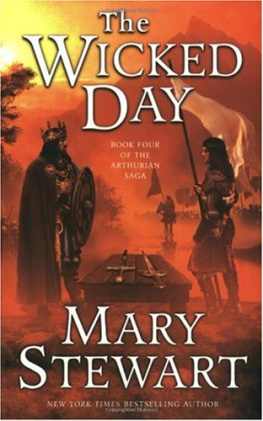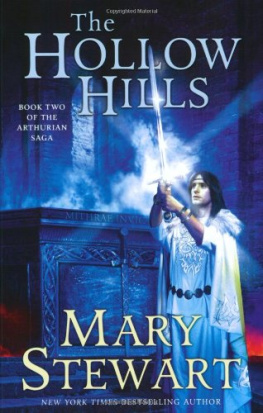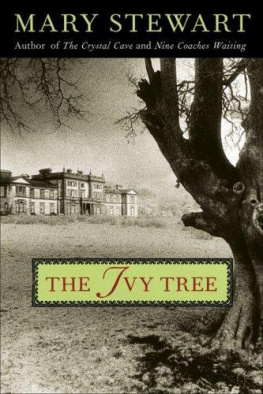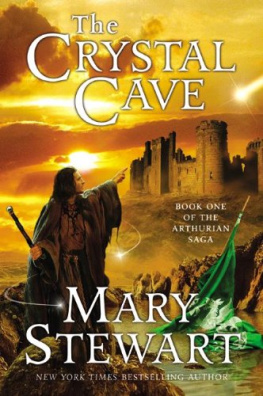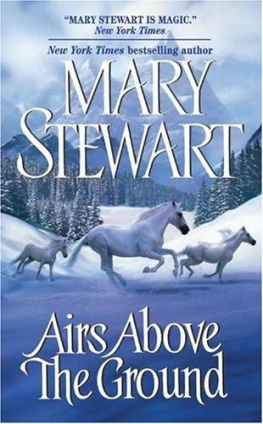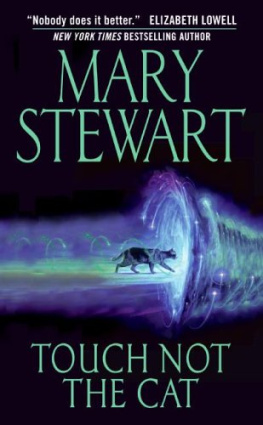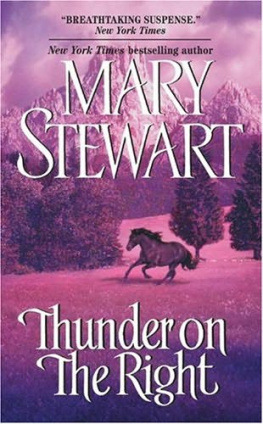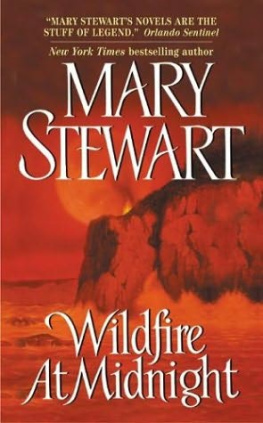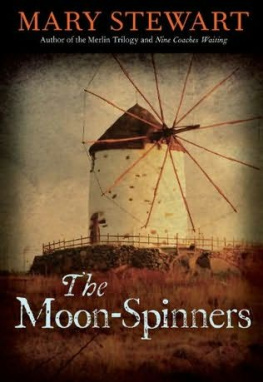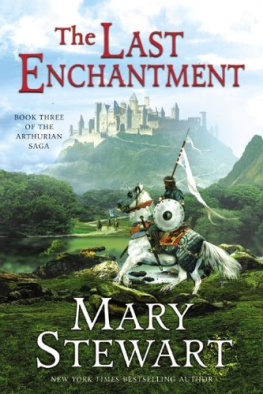Mary Stewart - The Wicked Day (The Arthurian Saga, Book 4)
Here you can read online Mary Stewart - The Wicked Day (The Arthurian Saga, Book 4) full text of the book (entire story) in english for free. Download pdf and epub, get meaning, cover and reviews about this ebook. year: 2003, publisher: Eos (Trade), genre: Adventure. Description of the work, (preface) as well as reviews are available. Best literature library LitArk.com created for fans of good reading and offers a wide selection of genres:
Romance novel
Science fiction
Adventure
Detective
Science
History
Home and family
Prose
Art
Politics
Computer
Non-fiction
Religion
Business
Children
Humor
Choose a favorite category and find really read worthwhile books. Enjoy immersion in the world of imagination, feel the emotions of the characters or learn something new for yourself, make an fascinating discovery.
- Book:The Wicked Day (The Arthurian Saga, Book 4)
- Author:
- Publisher:Eos (Trade)
- Genre:
- Year:2003
- Rating:4 / 5
- Favourites:Add to favourites
- Your mark:
- 80
- 1
- 2
- 3
- 4
- 5
The Wicked Day (The Arthurian Saga, Book 4): summary, description and annotation
We offer to read an annotation, description, summary or preface (depends on what the author of the book "The Wicked Day (The Arthurian Saga, Book 4)" wrote himself). If you haven't found the necessary information about the book — write in the comments, we will try to find it.
The Wicked Day (The Arthurian Saga, Book 4) — read online for free the complete book (whole text) full work
Below is the text of the book, divided by pages. System saving the place of the last page read, allows you to conveniently read the book "The Wicked Day (The Arthurian Saga, Book 4)" online for free, without having to search again every time where you left off. Put a bookmark, and you can go to the page where you finished reading at any time.
Font size:
Interval:
Bookmark:
To Geordie Haddington
with deep affection
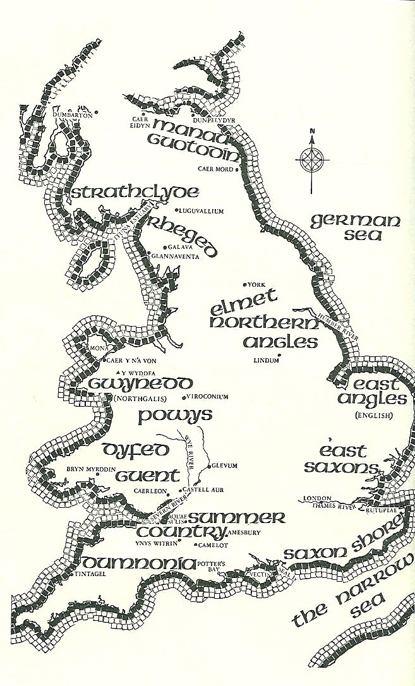
THE BOY WAS ALONE IN THEsummer world with the singing of the honey bees.
He lay flat on his back in the heather at the head of the cliff. Not far from him was the straight-cut line of dark turf where he had been working. The squared peats, stacked like slices of black bread along the ditched gash, were drying in the hot sun. He had been working since daybreak, and the line was a long one. Now the mattock lay idle against the peats while the boy drowsed after his midday meal. One hand, outflung on the heather, still held the remains of a barley bannock. His mother's two hives crude skeps of barley straw stood fifty paces in from the brink of the cliff. The heather smelled sweet and heady, like the mead that would be made from the honey. To and fro, sometimes within a finger's breadth of his face, the bees hurtled like slingshot. The only other sound in the drowsy afternoon was the crying, remote below him, of the seabirds at their nests along the cliff.
Something changed in the note of that crying.
The boy opened his eyes, and lay still, listening. Underneath the new, disturbed screaming of kittiwakes and razorbills, he heard the deeper, four-fold alarm note of the big gulls. He himself had not moved for half an hour or more, and in any case they were used to him. He turned his head, to see a flock of wheeling wings rise like blown snow above the cliff's edge some hundred paces away. There was a cove there, a deep inlet with no beach below. Hundreds of seabirds nested there, guillemots, shags, kittiwakes, and with them the big falcon. He could see her now, flying with the gulls that screamed to and fro.
The boy sat up. He could see no boat in the bay, but then a boat would hardly have caused such a disturbance among the high-nesting colonies on the cliff. An eagle? He could see none. At the most, he thought, it might be a predatory raven after the young ones, but any change in the monotony of the day's work was to be welcomed. He scrambled to his feet. Finding the remains of the bannock still in his hand, he made as if to eat it, then saw a beetle on it, and threw it away with a look of disgust. He ran across the heather towards the cove where the disturbance was.
He reached the edge and peered down. The birds flung themselves higher, screaming. Puffins hurtled from the rock below him in clumsy glide, legs wide and wings held stiffly. The big black-backed gulls vented their harsh cries. The whitened ledges where the kittiwakes sat in rows on their nests were empty of adult birds, which were weaving and screaming in the air.
He lay down, inching forward to peer directly down the cliff. The birds were diving in past a buttress of rock where wild thyme and sea-pink made a thick carpet splashed with white. Clumps of rose-root stirred in the wind of their wings. Then, among all the commotion, he heard a new sound, a cry like the cry of a gull, but somehow subtly different. A human cry. It came from somewhere well down the cliff, out of sight beyond the rocky buttress where the birds wheeled most thickly.
He moved carefully back from the edge, and got slowly to his feet. There was no beach at the foot of the cliff, nowhere to leave a boat, nothing but the steadily beating, echoing sea. The climber had gone down and there could only be one reason for trying to climb down here.
"The fool," he said with contempt. "Doesn't he know that the eggs will all be hatched now?" Half reluctantly he picked his way along the cliff top to a point from which he could see, stranded on a ledge beyond the buttress, another boy.
It was no one he knew. Out in this lonely corner of the island there were few families, and with the sons of the other fishermen Brude's son had never felt in tune. And oddly enough his parents had never encouraged him to mix with them, even as a child. Now, at ten years old, well grown and full of a wiry strength, he had helped his father with the man's jobs already for several years. It was a long time since, on his rare days off, he had troubled with children's ploys. Not that, for such as he, birds'-nesting was a child's game; still,, each spring, he made his way down these very cliffs to collect the freshly laid eggs for food. And later he and his father, armed with nets, would come to catch the young ones for Sula to skin and dry against the winter's hardships.
So he knew the ways down the cliff well enough. He also knew how dangerous they were, and the thought of being burdened with someone clumsy enough to strand himself, and probably by now thoroughly scared, was not pleasant.
The boy had seen him. His face was upturned, and he waved and called again.
Mordred made a face, then cupped his hands to his mouth. "What is it? Can't you get back?"
A vivid pantomime from below. It seemed unlikely that the climber could hear what was said, but the question was obvious, and so, too, was his answer. He had hurt his leg, otherwise and somehow his gestures conveyed this clearly he would not have dreamed of calling for help.
This bravado had little or no effect on the boy at the head of the cliff. With a shrug that indicated more boredom than anything else, the fisherman's son began the climb down.
It was difficult, and in two or three places dangerous, so Mordred went slowly, taking his time.
At length he landed on the ledge beside the climber.
The boys studied one another. The fisherman's son saw a boy of much his own age, with a shock of bright red-gold hair and hazel-green eyes. His complexion was clear and ruddy, his teeth good. And though his clothes were torn and stained with the dirt of the cliff, they were well made of good cloth, and brightly dyed in what looked like expensive colours. On one wrist he wore a copper bracelet no brighter than his hair. He sat with one leg over the other, gripping the hurt ankle tightly in both hands. He was obviously in pain, but when Mordred, with the working man's contempt for his idle betters, looked for signs of tears, he saw none.
"You've hurt your ankle?"
"Twisted it. I slipped."
"Is it broken?"
"I don't think so, just sprained. It hurts if I try to stand on it. I must say I'm glad to see you! I seem to have been here for ages. I didn't think anyone would be near enough to hear me, specially through all that noise."
"I didn't hear you. I saw the gulls."
"Well, thank the gods for that. You're a pretty good climber, aren't you?"
"I know these cliffs. I live near here. All right, we'll have to try it. Get up and let's see how you manage.
Can't you put that foot down at all?"
The red-haired boy hesitated, looking faintly surprised, as if the other's tone was strange to him. But all he said was: "I can try. I did try before, and it made me feel sick. I don't think some of those places were pretty bad, weren't they? Hadn't you better go and get help? Tell them to bring a rope."
"There's no one within miles." Mordred spoke impatiently. "My father's away with the boat. There's only Mother, and she'd be no use. I can get a rope, though. I've got one up at the peats. We'll manage all right with that."
"Fine." There was some attempt at a gay smile. "I'll wait for you, don't fret! But don't be too long, will you? They'll be worried at home."
At Brude's cottage, thought Mordred, his absence would never have been noticed. Boys such as he would have to break a leg and be away for a working day before anyone would start to trouble. No, that was not quite fair. Brude and Sula sometimes were as anxious over him as fowls with a single chicken.
He had never seen why; he had ailed nothing in all his life.
Font size:
Interval:
Bookmark:
Similar books «The Wicked Day (The Arthurian Saga, Book 4)»
Look at similar books to The Wicked Day (The Arthurian Saga, Book 4). We have selected literature similar in name and meaning in the hope of providing readers with more options to find new, interesting, not yet read works.
Discussion, reviews of the book The Wicked Day (The Arthurian Saga, Book 4) and just readers' own opinions. Leave your comments, write what you think about the work, its meaning or the main characters. Specify what exactly you liked and what you didn't like, and why you think so.

